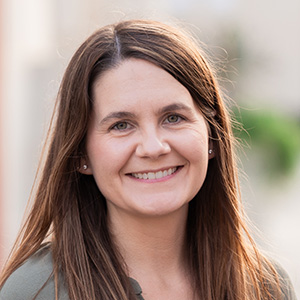
Focusing on a pivotal axis in chemoresistance
Chemotherapy is a frontline cancer treatment, but, over time, many cancers become resistant to the effects of chemotherapeutic drugs. Gastric carcinoma, or GC, is no exception and is among the top five causes of cancer-related mortalities worldwide. Chemoresistance occurs in GC via any number or combination of mechanisms, including a reduction in drug uptake or changes in the expression of molecular targets.
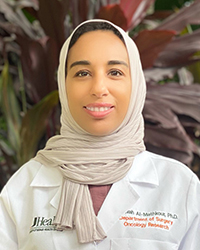
Marwah Al-Mathkour, a postdoctoral fellow at the University of Miami, studies this problem. “I am working with my colleagues to define the signaling pathway that leads to drug resistance in gastric cancer,” she said. “One important player is the CDK1–SOX9 axis.”
Cyclin-dependent kinase 1, or CDK1, is a critical cell cycle-regulating protein that shows increased tumor expression correlated with poor patient survival. The transcription factor SOX9 is a tumor suppressor in some cancers and an oncogene in others, including gastric cancer. CDK1 can regulate SOX9 expression through microRNA, or miRNA.
Al-Mathkour’s research in Wael El-Rifai’s lab focuses on underlying molecular and functional mechanisms of CDK1 and SOX9 genes in GC chemotherapy resistance. A challenging aspect of this work is trying to define how CDK1 and SOX9 drive this resistance.
“We are trying different techniques to find the connection, to understand the epigenetic mechanisms that explain the relationship between CDK1 and SOX9,” Al-Mathkour said. “In my work, microRNA is one of the players that contribute to the drug resistance.”
Researchers have previously reported specific miRNA changes in GC, which Al-Mathkour’s team observed in their data set. When they treated cells with a DNA methyltransferase inhibitor called 5-Aza, they saw upregulation in expression of miR-145, a tumor suppressor with many tumor-specific targets that regulates tumor growth, invasion and metastasis. CDK1 and SOX9 expression increases in multiple cell lines that are resistant to the chemo drug cisplatin; when both proteins are silenced, the cells become sensitive to chemotherapy.
Al-Mathkour said she wants to find ways to “improve the treatment for patients with resistance to chemotherapy.” One approach is to understand chemoresistance at a mechanistic level.
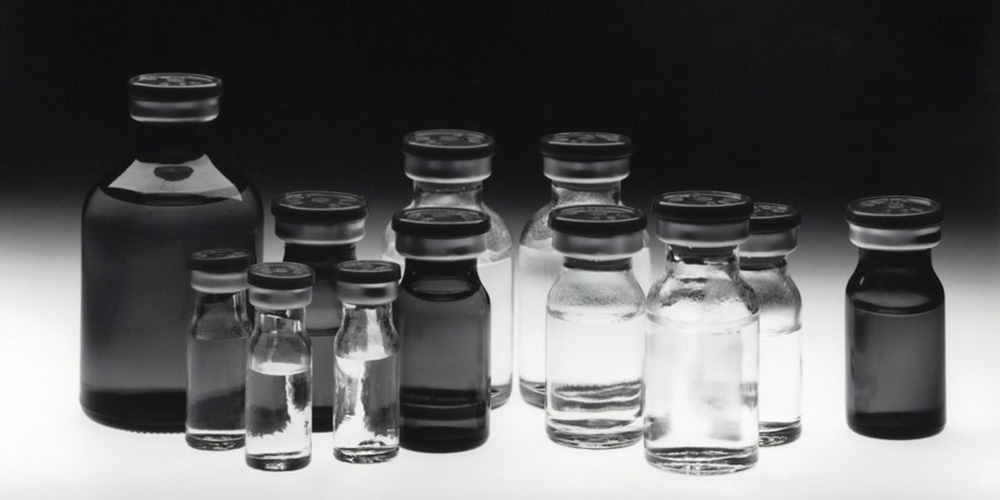
Details
Marwah Al-Mathkour will present this research from 5:30 to 6:30 p.m. CDT on Sunday, March 24, at Discover BMB 2024, the American Society for Biochemistry and Molecular Biology annual meeting in San Antonio. Her poster is at Board 324.
Abstract title: CDK1–SOX9 axis contributes to chemotherapy resistance in gastric cancer.
Enjoy reading ASBMB Today?
Become a member to receive the print edition four times a year and the digital edition monthly.
Learn moreGet the latest from ASBMB Today
Enter your email address, and we’ll send you a weekly email with recent articles, interviews and more.
Latest in Science
Science highlights or most popular articles

Building a career in nutrition across continents
Driven by past women in science, Kazi Sarjana Safain left Bangladesh and pursued a scientific career in the U.S.

Avoiding common figure errors in manuscript submissions
The three figure issues most often flagged during JBC’s data integrity review are background signal errors, image reuse and undeclared splicing errors. Learn how to avoid these and prevent mistakes that could impede publication.
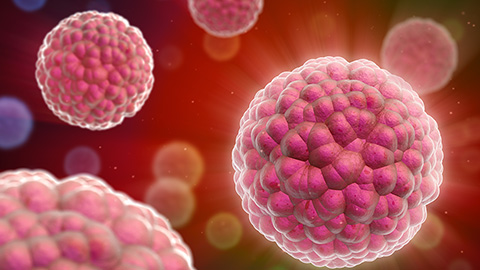
Ragweed compound thwarts aggressive bladder and breast cancers
Scientists from the University of Michigan reveal the mechanism of action of ambrosin, a compound from ragweed, selectively attacks advanced bladder and breast cancer cells in cell-based models, highlighting its potential to treat advanced tumors.

Lipid-lowering therapies could help treat IBD
Genetic evidence shows that drugs that reduce cholesterol or triglyceride levels can either raise or lower inflammatory bowel disease risk by altering gut microbes and immune signaling.
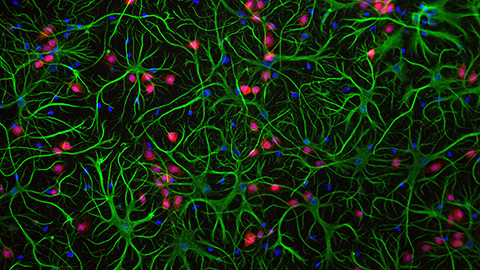
Key regulator of cholesterol protects against Alzheimer’s disease
A new study identifies oxysterol-binding protein-related protein 6 as a central controller of brain cholesterol balance, with protective effects against Alzheimer’s-related neurodegeneration.

From humble beginnings to unlocking lysosomal secrets
Monther Abu–Remaileh will receive the ASBMB’s 2026 Walter A. Shaw Young Investigator Award in Lipid Research at the ASBMB Annual Meeting, March 7-10 in Washington, D.C.

